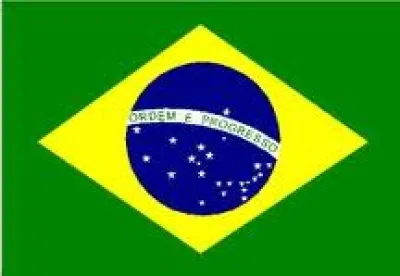Although it was encouraging when Brazil implemented new laws in the mid-1990s that expanded the scope of patentability to include pharmaceutical and biotechnology inventions, the Brazilian Patent Office (INPI) has not been able to accommodate the dramatic influx of patent applications that followed. At present, a serious backlog in patent prosecution delays the examination of applications by an average of 10 years, weakening the intellectual property infrastructure in Brazil. In an attempt to address the backlog and expedite patent prosecution, several pilot programs have been introduced. These programs include the Green Patent pilot program, the implementation of Rules #151/2015 and #80/2013 and the Patent Prosecution Highway (PPH) pilot program.
Green Patent Pilot Program
The goal of this program, coined the “green” patent program, is to examine applications related to alternative energy, transportation, energy conservation, waste management, and agriculture (other qualifying technologies are listed here), in two years or less. Launched in 2012, Brazil was the first country to implement such a program. The program is currently in its 4th phase and is accepting applications filed under the Patent Cooperation Treaty (PCT).
In order to participate in the program, an applicant must submit an application that contains no more than 15 total claims (of which three are independent), and has not previously undergone technical examination. A submission of the form specific to the pilot program must be completed, and examination and publication must be requested. According to the INPI, the progress of applications in the program can be tracked online. However a limited period of time remains to participate in the Green Patent pilot program.
INPI Rule #151/2015
Rule #151/2015 of November 10, 2015, revised the conditions for requesting priority examination of a patent application. Specifically, Rule #151/2015 allows expedited patent prosecution for elderly (above 60 years of age) or ill applicants, or applicants that can show a third party is reproducing the subject matter of their patent application. Rule #151/2015 revoked the specific provision which allowed the Ministry of Health to request prioritized examination of applications involving drugs regularly purchased by the Brazilian Public Health System. However the Ministry of Health can still request priority examination of strategic drugs for the Public Health System pursuant to Rule #80/2013 (discussed below), and the Brazilian government has retained the right to prioritize the examination of applications relevant to national emergency or public interest.
For more information, an English translation of Rule #154/2015, which implements the PPH pilot program, is available: Rule154.
INPI Rule #80/2013
Rule #80/2013 of April 9, 2013, establishes the possibility of expedited examination of applications relating to the diagnosis, prophylaxis and treatment of Acquired Immunodeficiency Syndrome (AIDS), cancer or other neglected diseases. Neglected diseases include:
-
Chagas Disease;
-
Dengue / Dengue hemorrhagic fever;
-
Schistosomiasis;
-
Leprosy;
-
Leishmaniasis;
-
Malaria;
-
Tuberculosis;
-
Buruli ulcer;
-
Neurocysticercosis;
-
Echinococcosis;
-
Bouba;
-
Fascioliasis;
-
Paragonimiasis;
-
Filariasis;
-
Rabies;
-
Helminthiasis;
-
Manifestations from intoxications or poisonings due to poisonous and venomous animals.
There is no limitation on the use of Rule #80/2013 and any applications expedited become the responsibility of the Board of Patent – DIRPA. Determination of whether or not an application would qualify for expedited examination under Rule #80/2013 and whether or not there would be any disadvantage associated with requesting such expedited examination must be done on a case-by-case basis. Interestingly, since 2013, Rule #80/2013 has only been used 28 times.
Judicially Induced Fast-Track Examination of Patent Applications
In addition, applicants can request the Federal Courts issue an order imposing a “judicially induced fast-track” examination of a pending application. Specifically, during the last few years, several applicants have filed lawsuits in the Federal Courts requesting expedited examination of a patent application. Several applicants have been successful in obtaining injunctive relief with the Courts ordering INPI to complete examination of a pending application within 60 days. The 60 day period to conclude examination takes into consideration sections 48 and 49 of Statute #9,784/99, which provides general rules governing federal proceedings. The attached graphic summarizes the decisions issued by each of the four intellectual property (IP) specialized courts as well as by the appellate courts. Both the 1st and 2nd Panels from the Court of Appeals for the 2nd Federal District, which are in charge of hearing appeals against decisions from the four IP specialized courts, have affirmed the decisions from the lower courts ordering INPI to expedite examination of pending applications.
Patent Prosecution Highway (PPH) Pilot Program
Implemented on January 11, 2016, the PPH pilot program is an agreement that exists between the United States Patent and Trademark Office (USPTO) and the INPI. Limited to oil and gas inventions (e.g. extraction, refining, and transportation) filed after January 1, 2013, the PPH allows expedited examination of a Brazilian application for which a corresponding U.S. application has received a Notice of Allowance from the USPTO. In order to participate, an Applicant must submit a copy of the Notice of Allowance issued by the USPTO for the related U.S. application, and pursuant to Rule #154/2015, the Applicant must also file a request using service code 277, and pay the requisite fee of R$1,775 (approximately US$420). While the PPH pilot program is an important step by the INPI in addressing the patent application backlog, the subject matter limitation to oil and gas technologies may result in future legal challenges before the Federal Courts.
Will there be any improvement in the backlog anytime soon?
Given the current political and economic crisis in Brazil, it is unlikely that applicants will see an improvement in the backlog any time soon. Moreover, the Ministry of Health will likely support launches at risk in order to have copies of lower cost drugs available in the Brazilian market. While not the best news for applicants, the worst case scenario is that pending applications will remain in the same place in INPI’s queue.
Roberto Rodrigues is co-author of this article.





 />i
/>i

